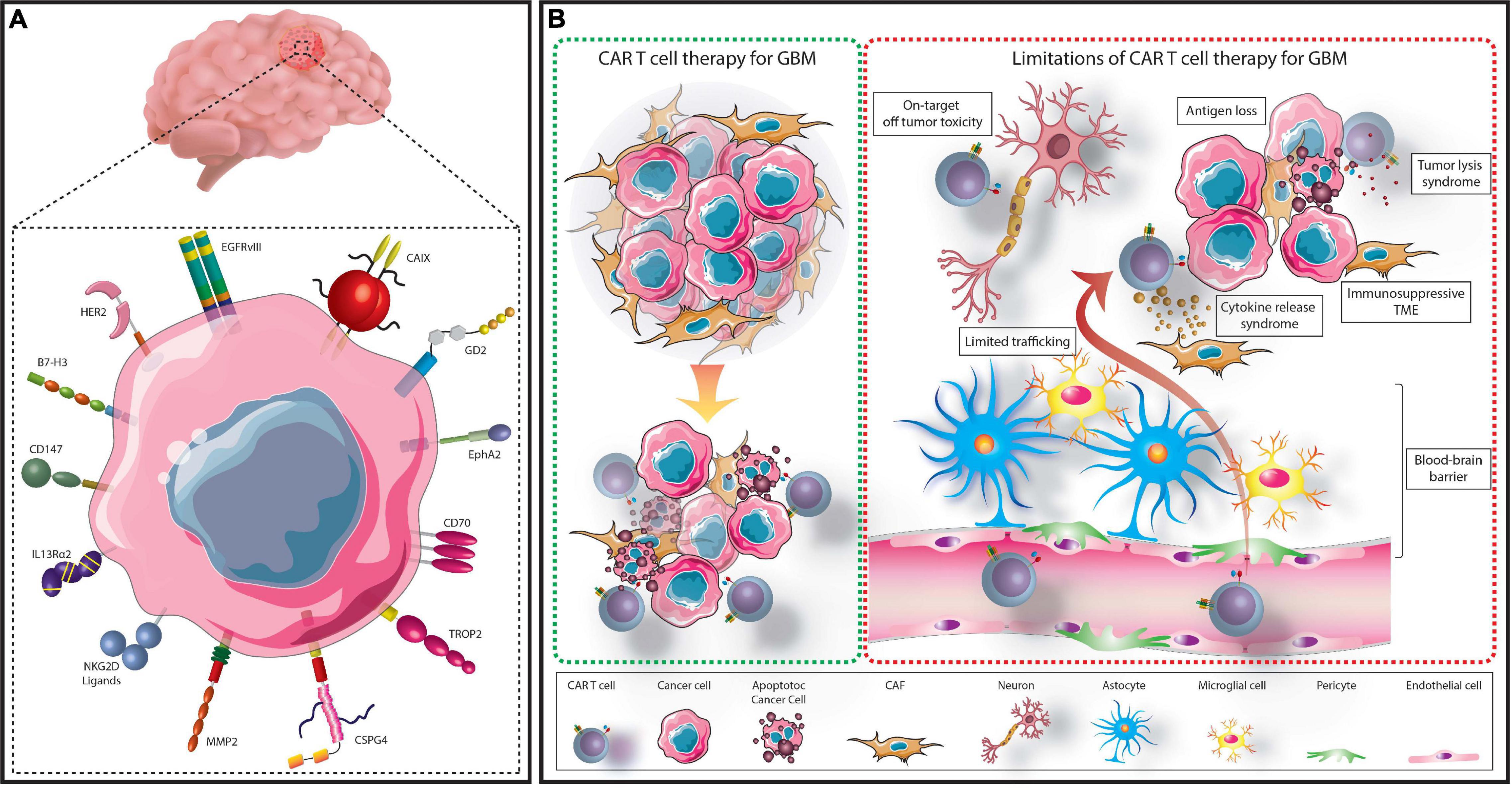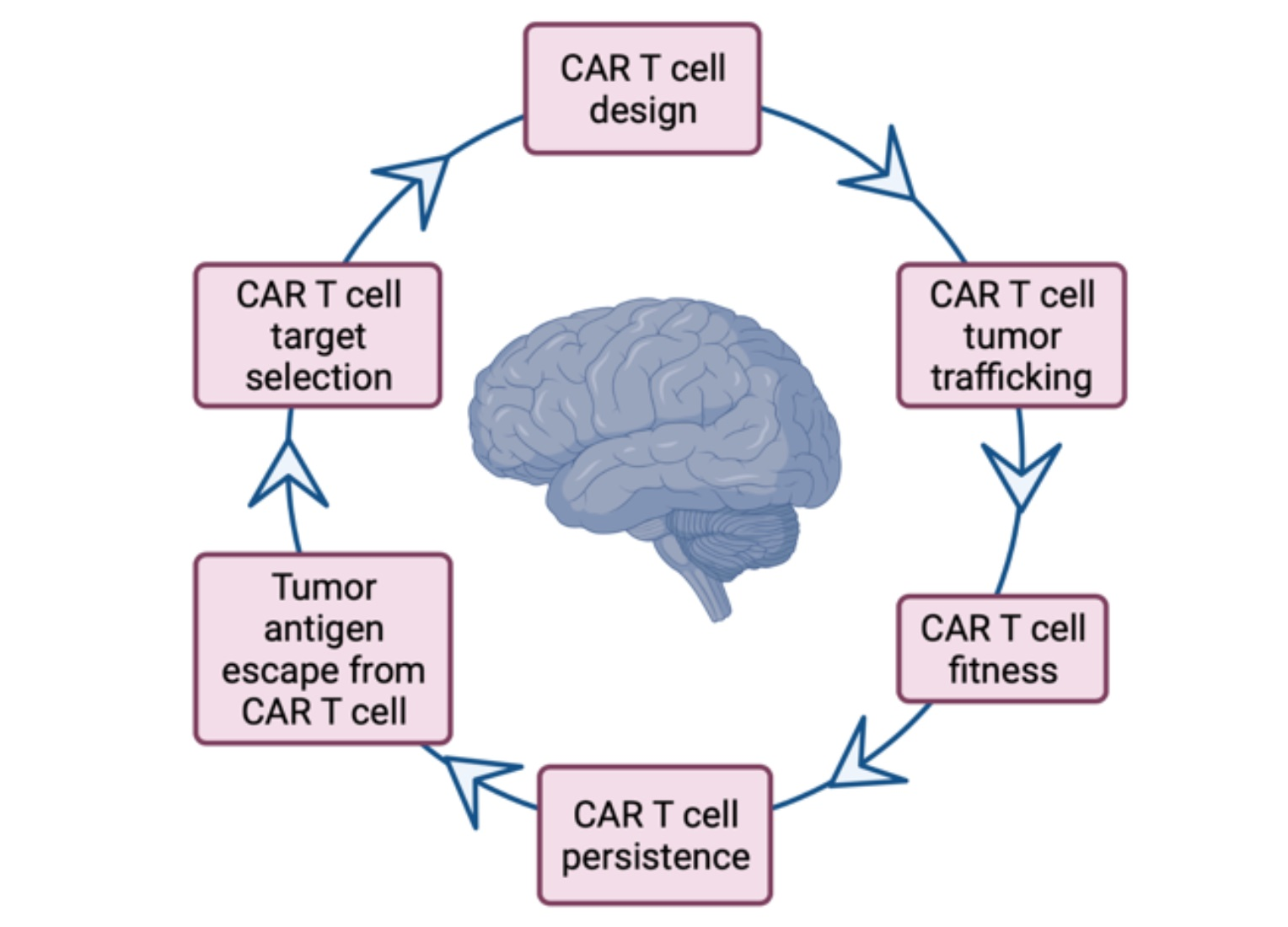Brain tumors, often termed neoplasms, are abnormal cell growths within the brain. Immunotherapy leverages the body’s immune system, with treatments like T cell modification, to fight cancer.
Engaging in clinical trials and pediatric care, glioma—one such brain tumor—presents unique challenges in treatment and research. A brain tumor emerges when abnormal cells form within the brain’s structure. Such neoplasms can be benign or malignant, influencing the approach to treatment.
Immunotherapy represents a cutting-edge frontier in oncology, aiming to boost the immune system’s ability to combat tumors. By reengineering T cells, scientists hope to target cancer cells more effectively. Clinical trials are crucial for advancing these treatments, especially in sensitive populations like children affected by conditions like glioma. Glioma, a common pediatric brain tumor, varies in aggressiveness from low-grade, treatable forms to high-grade, lethal variants. Researchers and clinicians continuously strive to improve therapeutic strategies through clinical studies, often focusing on novel immunotherapies that show promise in combating these challenging pediatric cancers.
Understanding Brain Tumors
Brain tumors can be a scary topic, especially for children. They are uncommon growths inside the skull. A brain tumor can change how the body feels, moves, and learns. This post will help break down what brain tumors are, the types you might encounter, and how they show themselves in symptoms.
Definition Of Brain Tumors
A brain tumor, known as a neoplasm, is a collection of cells in the brain that grows in an abnormal way. Tumors can be benign, which means not cancer, or malignant, which is cancer. These growths can happen at any age and can affect different brain functions.
Types Of Brain Tumors
There are many kinds of brain tumors. Some grow fast, and some grow slow. Below is a list of common types:
- Gliomas: These start in brain or spine cells called glial cells.
- Meningiomas: These start in the brain and spinal cord linings.
- Acoustic Neuromas: These are mostly benign tumors that develop on the nerve responsible for balance and hearing.
- Pituitary Adenomas: These are often benign tumors that occur in the pituitary gland.
- Medulloblastomas: These are common in children and start in the lower back part of the brain.
- Primary Central Nervous System (CNS) Lymphomas: These are rare, malignant tumors that appear in the lymph tissue of the brain or spinal cord.
Common Symptoms Of Brain Tumors
Brain tumors can cause many signs. Every person is different. Here are some symptoms people may have:
- Headaches that may be worse in the morning
- Seizures or convulsions
- Trouble with vision like blurriness or double seeing
- Changes in mood or personality
- Loss of movement or feeling in an arm or leg
- Problems with balance
- Confusion with everyday tasks
- Speech problems
- Hearing problems
It is important to speak with a doctor if you notice these signs. They can help find out if it is a brain tumor or something else.
Neoplasms And Brain Tumors
Understanding neoplasms and brain tumors is crucial in the medical field. They can affect both adults and children, often having a significant impact on health. Early detection and treatment are key to improving outcomes for patients.
What Are Neoplasms?
A neoplasm is an abnormal growth of tissue. This growth can be either benign (non-cancerous) or malignant (cancerous).
Neoplasms In The Brain
When neoplasms occur in the brain, they can disrupt normal functions and cause a range of symptoms. This can include headaches, seizures, and cognitive changes.
Link Between Neoplasms And Brain Tumors
All brain tumors are neoplasms, but not all neoplasms will become brain tumors. Cancerous neoplasms in the brain are known as gliomas.
Experts are researching new treatments like immunotherapy. This approach uses the body’s own T cells to fight cancer. Groundbreaking clinical trials are ongoing, especially in pediatrics, providing hope for younger patients.
Immunotherapy For Brain Tumors
Patients with brain tumors now have new hope with advancements in immunotherapy. This treatment taps into the power of the body’s immune system to fight the brain neoplasm. Children and adults alike benefit from innovative clinical trials. Specifically, trials investigating pediatric gliomas, a challenging brain tumor, offer promise for improved outcomes.
Introduction To Immunotherapy
Immunotherapy empowers the body’s immune cells to combat cancer. Unlike traditional treatments, it provides a targeted approach. By boosting natural defenses, this therapy holds potential for more effective and less toxic treatment options.
Role Of Immunotherapy In Brain Tumor Treatment
- Targets cancer cells with precision, sparing healthy tissues.
- Offers additional options when conventional therapies fail.
- Provides strategies designed to overcome the blood-brain barrier, which often limits the effectiveness of other treatments.
Immunotherapeutic Approaches For Brain Tumors
- T Cell Therapy: Engineers T cells in a lab to recognize and attack brain tumors.
- Clinical Trials: Trials test new immunotherapy treatments. They give hope to patients, especially children with aggressive brain tumors like glioma.
- Vaccine-Based Therapies: Vaccines designed to prompt the immune system to fight the tumor, similar to how it would tackle a virus.

Credit: www.frontiersin.org
T Cells And Brain Tumor
Brain tumors pose a significant health challenge, especially in pediatrics. Among the various treatment strategies being researched, harnessing the power of the body’s own immune system proves promising. This article explores the intriguing intersection between T cells and brain tumors such as glioma, and how immunotherapy may unlock new avenues for effective treatments.
Understanding T Cells
T cells are a crucial part of our immune system. They seek and destroy infected or cancerous cells. Born in the bone marrow, these cells mature in the thymus, hence the ‘T’ in their name. T cells come in different types, including helper T cells and killer T cells. Both types are critical in immune defense.
Role Of T Cells In Brain Tumor Immune Response
T cells can recognize cancer cells in the brain. However, brain tumors, like gliomas, often evade immune detection. Brain tumors use tricks to hide from T cells or even shut them down. In pediatrics, the immune system is not fully mature, making this battle even harder.
Research is focusing on how to make T cells better recognize and attack brain tumors, paving the way for new treatments.
T Cell-based Immunotherapies For Brain Tumors
Immunotherapies aim to enhance the immune system. New treatments like Checkpoint inhibitors and CAR T-cell Therapy are in clinical trials. They adapt T cells to better fight tumors. This approach is a ray of hope for children with gliomas.
- Checkpoint inhibitors unblock T cells, helping them attack tumors.
- CAR T-cell Therapy engineers T cells to be more effective against cancer cells.
These therapies are still in clinical trials. Their success could mean a leap forward in pediatric brain tumor treatment.
Clinical Trials In Pediatric Brain Tumors
Pediatric brain tumors present a critical challenge in the medical field. Clinical trials are the backbone of advancing treatment. They offer hope for new therapies that can save young lives. Clinical trials also help doctors understand how best to tackle these brain tumors in children.
Importance of Clinical Trials for Pediatric Brain Tumors
Importance Of Clinical Trials For Pediatric Brain Tumors
Clinical trials are vital for discovering new treatments. They test the safety and effectiveness of new drugs. They also find new ways to use existing treatments. These trials are often the only way to make progress against brain tumors in children. Survival rates improve as new treatments get discovered.
Types of Clinical Trials in Pediatric Oncology
Types Of Clinical Trials In Pediatric Oncology
- Phase 1: Tests safety of a new treatment
- Phase 2: Focuses on effectiveness of the treatment
- Phase 3: Compares new treatment with the best current treatment
- Phase 4: Looks at long-term side effects and quality of life
Promising Results from Pediatric Brain Tumor Clinical Trials
Promising Results From Pediatric Brain Tumor Clinical Trials
Exciting breakthroughs have come from recent clinical trials. Immunotherapy shows promise in treating aggressive tumors. This approach empowers a child’s own T cells to fight cancer. Trials on gliomas have seen some kids respond well to new combos of treatments.

Credit: www.cell.com
Advancements In Glioma Research
Introductory Paragraph
Gliomas represent some of the most complex brain tumors. These cancerous growths arise from glial cells in the central nervous system. Over the past few years, significant progress has been made in understanding and treating these serious conditions, particularly in children. Strides in immunotherapy, leveraging the body’s own defense system to target cancer cells, are at the forefront of this innovative journey. This post sheds light on the current landscape and emerging hope in glioma research.
H3 Heading: Overview of Glioma
Overview Of Glioma
Glioma is not a single disease but a category of brain tumors. They differ widely in location, severity, and prognosis. Gliomas can affect adults but are especially heartbreaking when they occur in children. Despite advances, the battle against pediatric gliomas remains challenging.
H3 Heading: Current Challenges in Glioma Treatment
Current Challenges In Glioma Treatment
- Complex tumor locations making surgical removal risky
- Limited effectiveness of chemotherapy and radiation in some cases
- Difficulties in crossing the blood-brain barrier with medication
- Concerns about long-term side effects, particularly in children
H3 Heading: Recent Breakthroughs and Future Directions
Recent Breakthroughs And Future Directions
Innovative treatments are offering new hope. A key breakthrough involves T cells, part of the immune system. These cells can be genetically modified in the laboratory to recognize and attack glioma cells. Clinical trials are ongoing to test the safety and effectiveness of these engineered T cells in patients.
Table for Current Clinical Trials
| Clinical Trial Name | Phase | Age Group |
|---|---|---|
| Immunotherapy using CAR T cells | I/II | Pediatrics |
| Checkpoint inhibitor therapy | II | Adults |
The ultimate goal is to translate these discoveries into effective treatments. With each clinical trial, researchers get closer to turning the tide against pediatric gliomas. Harnessing the power of the immune system, particularly through immunotherapy, offers a beacon of hope for children affected by this daunting disease.

Credit: www.mdpi.com
Frequently Asked Questions On Brain Tumor, Neoplasm, Immunotherapy, T Cell, Clinical Trial, Pediatrics, Glioma
What Is The Survival Rate For Glioma Brain Tumor In Children?
The survival rate for pediatric glioma varies but can range from 70% to over 90% for low-grade gliomas.
Does Immunotherapy Work For Glioma?
Immunotherapy shows promise for glioma, with ongoing clinical trials exploring its effectiveness. Results are not yet conclusive.
What Is The Most Aggressive Pediatric Brain Cancer?
The most aggressive pediatric brain cancer is diffuse intrinsic pontine glioma (DIPG).
What Is Immunotherapy For Pediatric Brain Tumor?
Immunotherapy for pediatric brain tumors is a treatment that engages the child’s immune system to target and combat cancerous cells.
Conclusion
Understanding the complexity of brain tumors, from neoplasms to gliomas, is vital. Immunotherapy’s promising role, especially T cell-based strategies, is reshaping pediatric oncology. As clinical trials continue to unveil new insights, hope grows for affected families. Embracing this progress could transform outcomes for our youngest patients.

